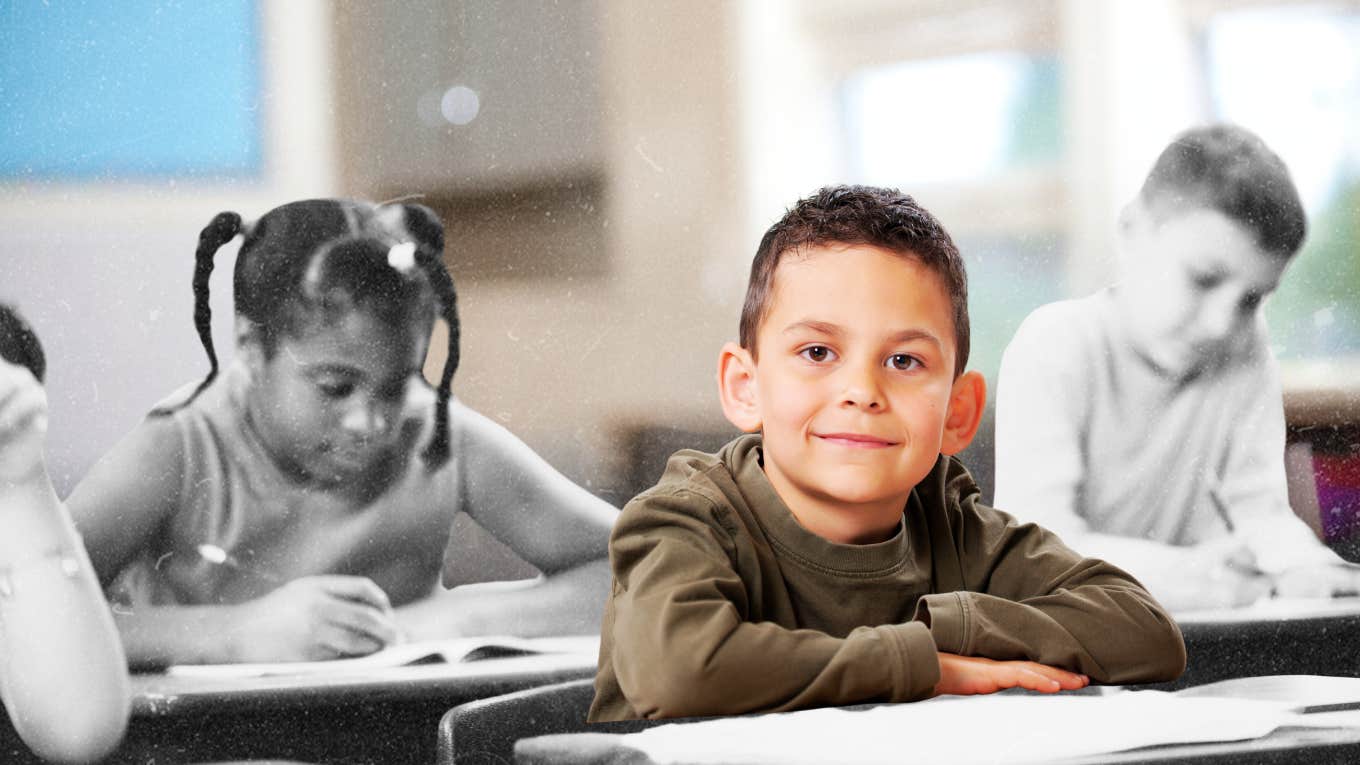One Thing Parents Fail To Do That Can Seriously Limit A Kid's Potential
You are doing your best, but maybe do your best needs a little tuning.
 FatCamera | Canva
FatCamera | Canva On my oldest child's first day of fourth grade, I was a little nervous. My son was a good student, but he wasn't so stellar at timed multiplication table tests, and he wasn't the best reader either. Some of the other kids were a little further along than he was, according to my mommy network. Moms with older kids had already told me, "Fourth grade is really hard, and there is a lot of homework." Fourth grade is where the elementary school rubber meets the road — so to speak. No more fooling around.
As his new teacher and I were talking, I lamented the whole multiplication table struggle. She just looked at me, smiled, and said, "He'll be fine. Just don't do too much for him. Let him fail now while the consequences are, well, inconsequential. It'll be one of the best things you'll ever do for him."
We need to let our kids fail sometimes while the consequences are minor
 Simona Pilolla 2 via Shutterstock
Simona Pilolla 2 via Shutterstock
Deep down, I knew I had to consider what this teacher was saying. She'd seen many children grow up during her tenure as a teacher and had raised two accomplished and responsible children of her own. She was speaking from a place of experience and wisdom.
About a week later came my first test. My son had finished his homework quite nicely the night before but hadn't put it in his backpack right away, and as you might guess, he left it at home the next morning. About half an hour later, the phone rang; it was the school district. I knew the teacher or administration would leave a message, but my son wouldn't. I let the phone ring. No message.
I knew the right thing was not to bail him out by taking the homework to his classroom.
I could have. I was a stay-at-home mom who lived very close to school. It would have been easier to take it than to fight the urge to enable his 10-year-old careless ways. His homework, that one simple piece of paper, glared at me all day from my kitchen countertop. I worried he would be upset about the lower grade he would receive and might be mad at me for not bringing it. I certainly didn't want that!
Of course, he did indeed take a grade cut, and he was indeed upset about it. But I don't think he ever left an assignment at home again, and having had this experience in 4th grade has served him well all through his school days.
This is just one small example of the positive effects of letting our children fail in age-appropriate ways. Many other scenarios aren't nearly as simple or clear as this one. As children grow up, the stakes get much higher, which is why it helps to arm them with the following three tools.
When kids are allowed to suffer natural consequences early in life, here are three big benefits they gain.
Capability. By allowing kids their small failures, we inadvertently give them the gift of learning how to become capable of handling their affairs themselves. This can seem very counter-intuitive for us as parents, as we may think if they fail, they will feel incapable. However, it is in learning from the mistake and getting it right the next time that strength is gained.
Confidence. When we jump in and do too much for our kids, we are effectively telling them we don't think they can handle it themselves, they aren't capable, and they need help. This undermines their confidence, and they won't feel empowered to stand on their own two feet later on.
Resilience. Kids become more resilient when they have failed, learned, and have become capable and confident from it. Who knows what our kids will encounter in this world, but they will surely need resiliency to cope with, overcome, and move beyond it. Giving kids the capability and confidence they need to stand strong and handle what comes is one of the biggest gifts we could ever give them.
Whether your child is in elementary school or much older, what are some ways you can let them fail? How can you give them the gift of suffering the natural consequences of their actions, so that they may gain capability, confidence, and resilience?
Leslie Ferris, ACC, ELI-MP, MBA is a life coach with multiple specialties, including working with families raising kids facing challenges.

